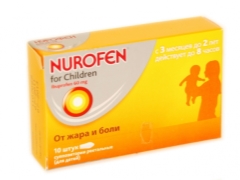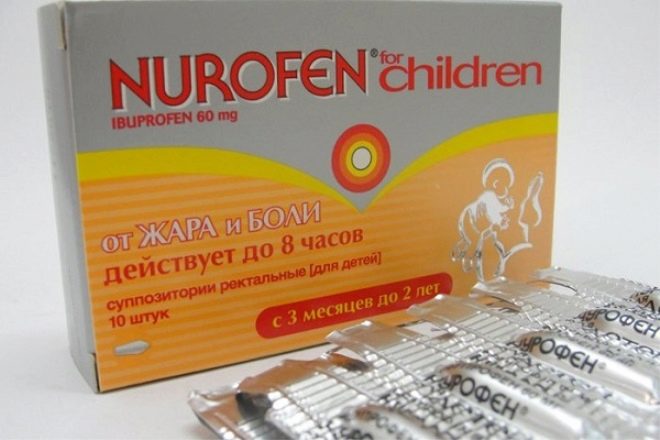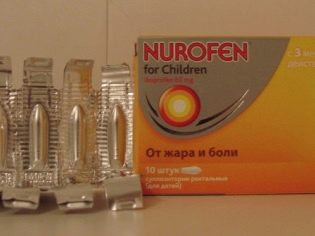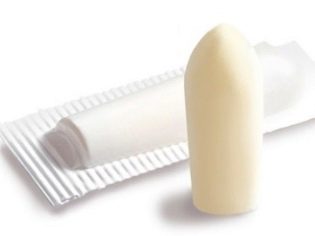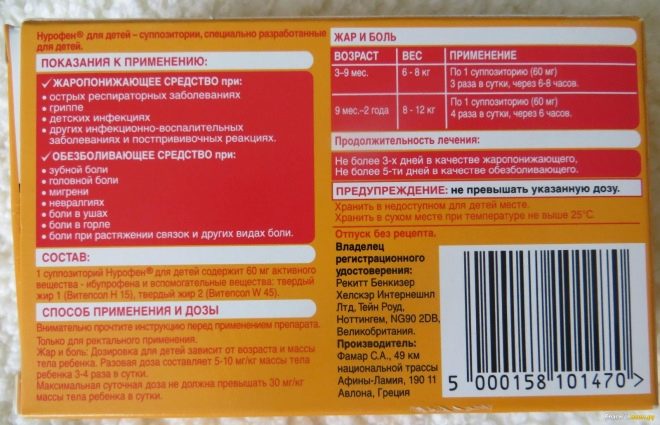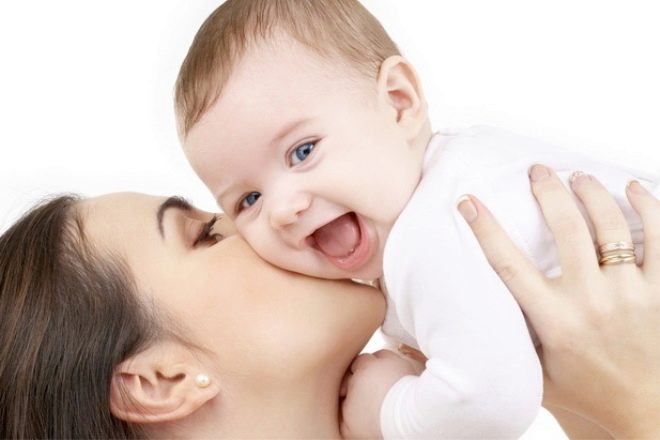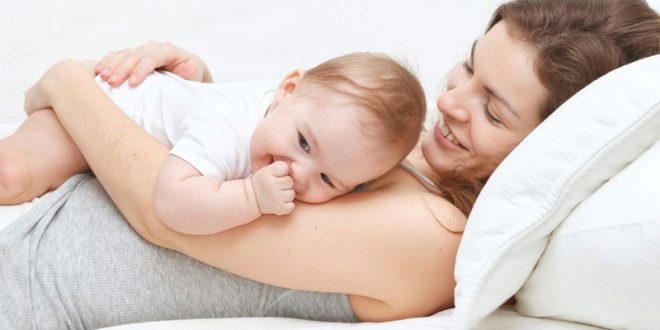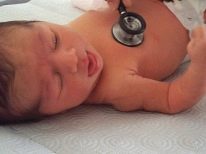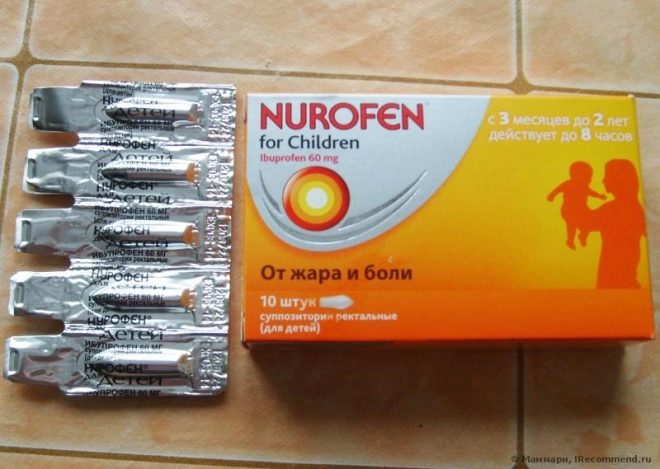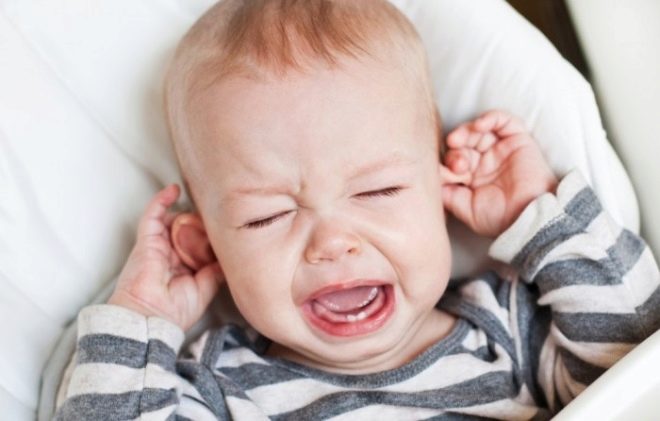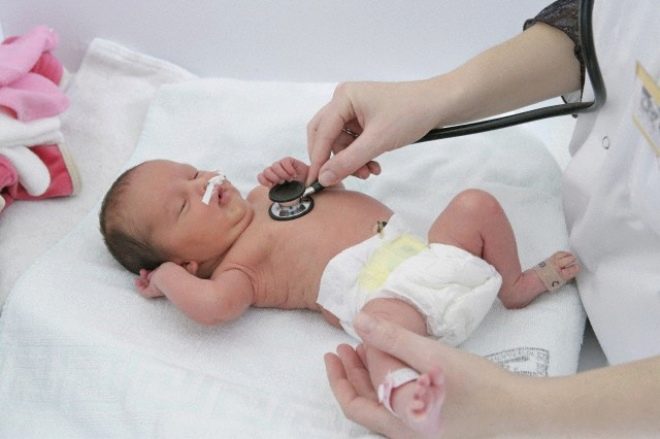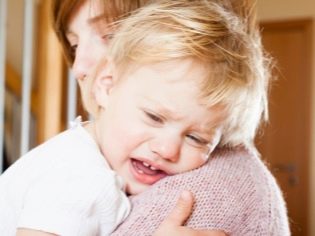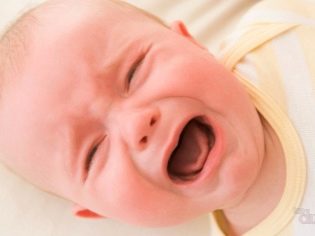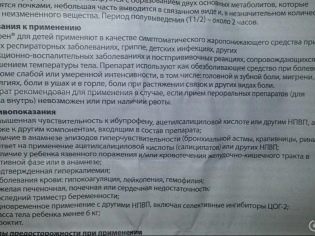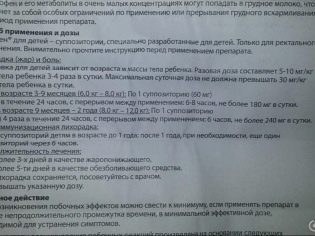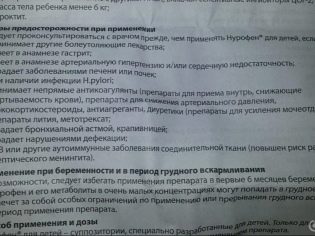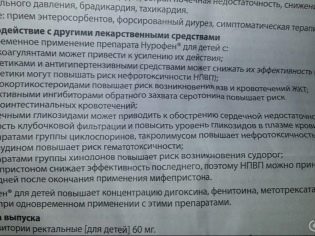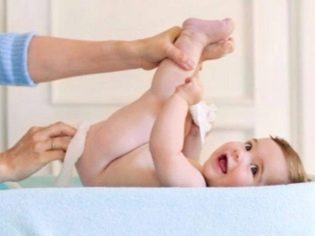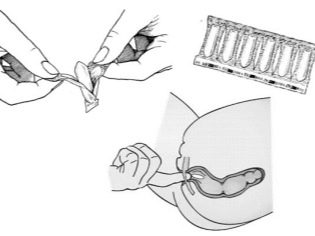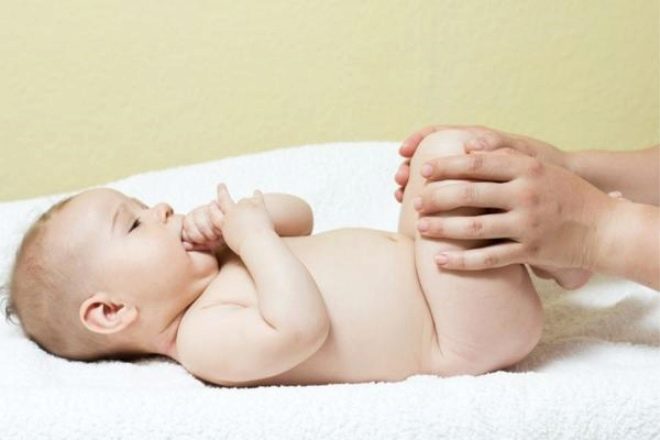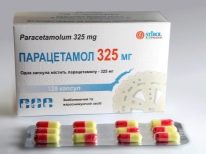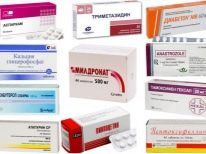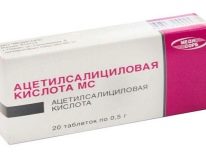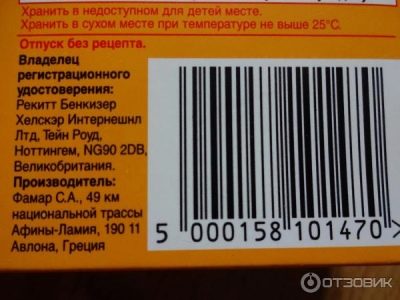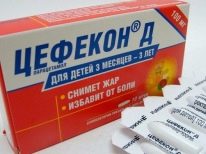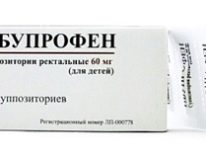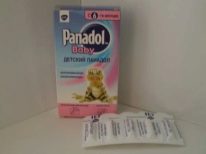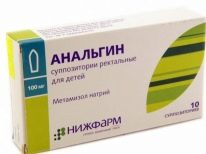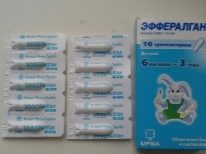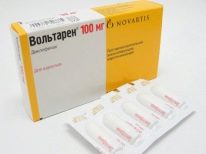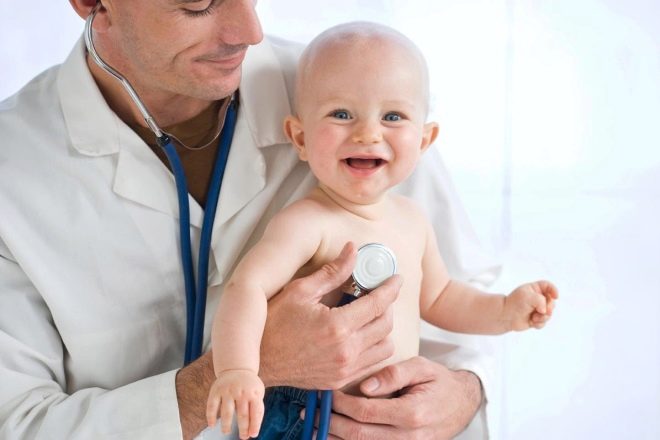Candles "Nurofen" for children: instructions for use
Nurofen is one of the popular anti-inflammatory drugs and is often taken in various pathological conditions, including fever and pain of different localization. It is more convenient for adults to use such a medicine in pills, but for babies, candles and suspensions are more suitable options. And because Nurofen produced in such forms is marked on the package "for children".
Nurofen in rectal suppositories was developed specifically for the youngest children. This drug is easy to use even in infants, because its use eliminates the need to swallow syrup or tablets. Besides, Suppositories are convenient both for vomiting and for patients who should not take their medications by mouth. When they are prescribed to babies, in what dosage is used and what can they replace if the drug is not suitable?
Release form
Nurofen in candles is sold in a cardboard box, inside of which there are two blisters of aluminum, containing 5 suppositories each. Freed from the packaging of the drug has a white color and an elongated shape. Such a candle has a smooth surface, and inside there may be a small recess or air rod.
Composition
Each candle Nurofen as the main component, which provides such medicine with its therapeutic effect, includes ibuprofen. The amount of this substance in one suppository is 60 mg. In addition to it, there are only two types of solid fat in the composition of the medicine, thanks to which the candles keep their shape, are easily inserted into the anus and quickly dissolve inside the intestine. Other chemicals in this form Nurofen absent.
Operating principle
Since Nurofen is one of non-steroidal anti-inflammatory drugs, He noted the therapeutic effects characteristic of the group of such drugs:
- Analgesic.
- Antipyretic.
- Anti-inflammatory.
All of them are due to the influence of the active substance suppositories on the synthesis of prostaglandins. This name is mediators, formed in the human body during a temperature reaction, pain or inflammation. Since ibuprofen is able to block cyclooxygenases of the first and second types (these are the enzymes that “direct” the formation of prostaglandins), this leads to inhibition of the synthesis of prostaglandins, with the result that the pain reaction, fever or inflammation decreases. It is worth noting that with pain syndrome, the effect of Nurofen is more pronounced if the cause of painful sensations is inflammation.
After absorption from the intestine, ibuprofen from the suppository enters the bloodstream, where it forms compounds with plasma proteins. Further, the active ingredient is transferred to different tissues, where it exerts its effect up to 8 hours. Ibuprofen transformations occur in the livertherefore, the pathologies of this organ affect the treatment of Nurofen, as well as kidney disease, because the removal of the drug from the child’s body occurs in the urine.
Nurofen in candlelight often acts 20-30 minutes after the administration, since the absorption time of the drug is about 15 minutes.
Indications
Nurofen in candles is most in demand, as an antipyretic drug, when a baby has an inflammatory or infectious disease or other pathological condition in which the body temperature rises. The drug is prescribed:
- Kids with ARVI.
- Children with flu.
- Infants with acute otitis.
- Patients with various childhood infections (scarlet fever, measles and others).
- Children with intestinal infection.
- Baby with other inflammatory diseases.
- Babies who have been vaccinated (with increasing temperature in response to vaccination).
- Children with a temperature that arose during teething.
Children's Nurofen is no less popular with pain syndrome, which by the intensity of sensations can be both weak and moderate. Suppositories use:
- When sore throat.
- With toothache.
- With painful sensations in the joints.
- With headaches.
- When pain in the ear, for example, caused by acute otitis.
- With sprains.
- With bruises.
- With postoperative pain.
- With pain in the muscles.
- For bone fractures.
- With neuralgia.
From what age is assigned to children?
According to the instructions Nurofen, which is produced in the form of suppositories, is used from 3 months of age. Children over the age of two years also do not write them out, because a sufficient dosage of ibuprofen, which is usually obtained from a suspension, is necessary for a sufficient therapeutic effect to two-year-old patients and older.
Infants up to three months, such candles are not prescribed.
When are candles used for fever?
Since the most common reason for using Nurofen in babies is fever, parents should know in which cases the suppository treatment is justified. If we talk about numbers, then for a child of 2-24 months, an indicator on a thermometer requiring the use of antipyretic is called + 39C. However, there are situations when the temperature should be “shot down” even at a lower figure:
- If there is a high risk of seizures (febrile). Seizures of such convulsions in the past or some neurological pathologies in an infant suggest it.
- If the child has serious diseases of the cardiovascular system.
- If the crumb takes a fever very hard.
- If the fever is provoked by overheating.
- If the cause of the high temperature was vaccination.
Contraindications
Nurofen candles are not used:
- If the baby weighs less than 6 kilograms.
- If a child has previously had an allergic reaction when treated with any anti-inflammatory medication with a non-steroid structure.
- If a baby has an erosive or ulcerative lesion of the walls of the digestive tract, including bleeding.
- If the child suffers from some serious progressive kidney disease.
- If the patient has an active liver disease or severe insufficiency of the function of this organ has developed.
- If a baby’s blood test shows hyperkalemia or a bleeding disorder.
- If the baby has developed heart failure and it is in the stage of decompensation.
- If the baby is diagnosed with proctitis.
- If the examination revealed the presence of intracranial hemorrhage.
- If crumbs have severe abdominal pain.
In addition, in the annotation, there are quite a lot of pathologies in which the treatment must be careful. These include systemic lupus erythematosus, dehydration, arterial hypertension, anemia, diabetes mellitus and other diseases, therefore, for any health problems of toxins, Nurofen can be used only under the supervision of a physician.
Side effects
Sometimes the use of candles Nurofen in a child may appear negative reaction in the form of:
- Nausea
- Edema, dermatosis, erythema, urticaria, or other allergic reaction.
- Exacerbations of asthma.
- Stomach ache
- Headaches.
A more rare, but possible negative consequence of the use of suppositories is a violation of blood formation, which is manifested by a decrease in the number of red blood cells in the blood, a decrease in the number of white blood cells, thrombocytopenia, a decrease in the number of granulocytes, and so on. Clinically, this side effect of Nurofen looks like lethargy and weakness, the appearance of bleeding (for example, from the nose) and bruises, complaints of pain in the throat, formation of sores in the mouth and other signs.
Occasionally in babies after using a suppository occurs dyspepsia, which is manifested by flatulence, constipation, bouts of vomiting, loose stools (diarrhea). In rare cases, the child’s body may react to Nurofen with an anaphylactic reaction, the appearance of a stomach ulcer, hematemesis or gastric bleeding, the development of ulcerative stomatitis, a liver malfunction, acute renal failure, peripheral edema, elevated blood pressure and other ailments.
If a child has at least one of these side effects after the first use of a candle, treatment should be stopped and at the same time contact the pediatrician so that he can prescribe another therapy.
Instructions for use
Nurofen in suppositories is used only rectally, and the dosage of the drug is determined by taking into account several factors, among which the age and body weight of a small patient are the most significant. The drug is gently inserted into the anus and pushed with the index finger to the level of the middle of the 2nd phalanx.
A single dose from the age of three months to two years is one candle (60 mg). Infants 3–9 months old weighing from 6,000 g to 8,000 g can be administered three times a day, and the maximum dosage for this age is 180 mg. Babies older than 9 months to two years of age, whose body weight is 8-12 kilograms, candles can be administered four times, as the maximum ibuprofen per day at this age is 240 mg.
The intervals between the use of candles should be from 6 to 8 hours. Insert the drug preferably after defecation. If the child went to the toilet after the administration of the suppository, and the candle had not yet resolved (less than 15 minutes had passed), the medicine could be reused. To make sure that the medicine is not absorbed, you can wait about 30 minutes - if the temperature does not begin to "fall", you can put another candle.
The duration of the treatment of febrile syndrome in case of acute respiratory viral infections, influenza and other infections should not exceed three days, and for pain, give medicine for up to 5 days. If the baby has 3-5 months in the first 24 hours after applying Nurofen, no improvement is noted, you should immediately notify the doctor. For children older than 6 months, observation is carried out for 3 days. If during this period the condition has not improved, the symptoms do not disappear or worsen, an immediate consultation of the doctor is required.
If Nurofen is prescribed in a candlelight to a child with a temperature reaction to the vaccine, then one candle is administered to the baby once. Carapuses older than a year, if necessary, after 6-8 hours, it is permissible to introduce another suppository. The maximum amount of the drug during the post-immunization temperature rise in children older than one year is called 2 suppositories, which corresponds to 120 mg of ibuprofen per 24 hours.
Overdose
Significant excess doses of ibuprofen can cause nausea, tinnitus, abdominal pain and other symptoms, but when using suppositories overdose is almost not encountered, since it is not possible to introduce many candles into the rectum at once. It happens only if you use the medicine more often than every 6-8 hours.
In such a situation, if you feel unwell, you should consult a doctor.
Interaction with other drugs
Nurofen in candlelight should not be used with acetylsalicylic acid, thrombolytic drugs, diuretics, nimesulide, antiplatelet agents, paracetamol, zidovudine, cyclosporine, cardiac glycosides and many other medicines. Most of them, when combined with ibuprofen, increase the risk of adverse reactions to treatment, for example, it has a nephrotoxic effect.
Terms of sale
Rectal suppositories Nurofen can be freely purchased at any pharmacy, as it is a non-prescription medicine. For a package of ten suppositories you need to pay from 90 to 110 rubles.
Storage conditions and shelf life
To prevent the medication from losing its therapeutic effect and helping the baby during a fever, candles should be kept in a dry place that will be hidden from children. It is not required to place the medicine in the refrigerator, because the annotation indicates that the temperature storage mode allows heating up to +25 degrees. If the packaging of candles is damaged or the permissible storage period (2 years from the production date) has expired, such Nurofen should be discarded.
Reviews
There are a lot of good reviews about the treatment with Nurofen suppositories. The drug is especially in demand among mothers of infants and toddlers with a tendency to allergies due to the convenient form and the absence of any harmful chemical compounds. Among the advantages of this option Nurofen also call it a fast and long-lasting therapeutic effect when compared with the suspension.
According to parents, adverse reactions to suppositories rarely develop. If the medicine is used for a short period and in the dose prescribed by the doctor, most babies tolerate the medicine normally.
As for the price, some mothers call it acceptable, while others - a bit overpriced.
Analogs
Replacing suppositories Nurofen may be another drug with the same effect, produced in candles, for example:
- Ibuprofen This medicine includes the same active substance as Nurofen and in the same dosage (60 mg in one candle). It can be used for heat or pain in babies older than 3 months.
- Children's Panadol. The action of this drug in suppositories provides paracetamol. The drug with a dosage of 125 mg is used in infants aged 6 to 18 months.
- Cefecone D. These candles are also made on the basis of paracetamol, but can be used in children from 1 month, since the amount of the active ingredient in one candle is 50 mg.
- Efferalgan. This is another antipyretic drug in candles, containing paracetamol. At a dosage of 80 mg, it is prescribed for babies 3-5 months with a weight of 6-8 kg, at a dose of 150 mg - for children older than six months, but younger than 3 years. In addition, Efferalgan candles can contain 300 mg of paracetamol in each suppository. This medication is used in children 3-10 years old, for example, if a child has vomiting that makes it difficult to give a syrup.
- Voltaren. This medication, containing diclofenac sodium at a dose of 25 mg in each suppository, is used at any age. It is usually prescribed for severe pains or an inflammatory process, and during a temperature reaction these candles are used when there is no other antipyretic drugs on hand.
- Analgin. These suppositories based on metamizole sodium can be used in children older than 3 months of age, but for infants up to one year this medication is prescribed with caution. Like Voltaren, such Analgin is used only in the absence of more safe means for the infant.
It is also important to note that Nurofen or any of its analogs are symptomatic drugs, that is, they affect only certain symptoms of the disease, for example, they help eliminate earaches and reduce the temperature in a child with otitis. At the same time, such drugs do not affect the cause of the disease (pathogenic bacteria, viruses, and other factors), so you should not give them without a medical examination.
For fever or pain, it is best to contact a pediatrician.The doctor will examine the baby and make a diagnosis, after which he will be given not only an antipyretic / analgesic medicine, but also a treatment aimed at the cause, such as an antibiotic, if the baby has developed a purulent tonsillitis.
Sticking candles to a baby without the consent of a pediatrician can be dangerous to the health of the toddler.
